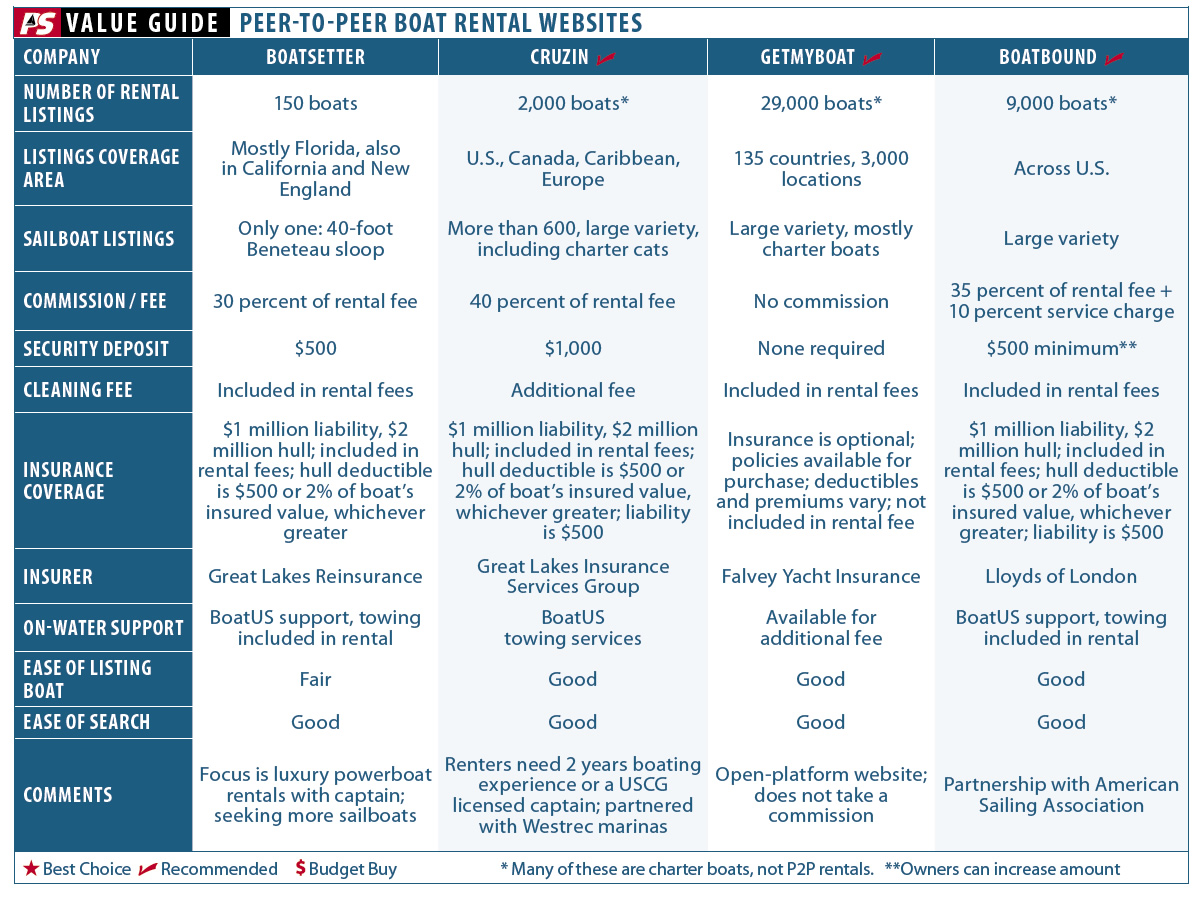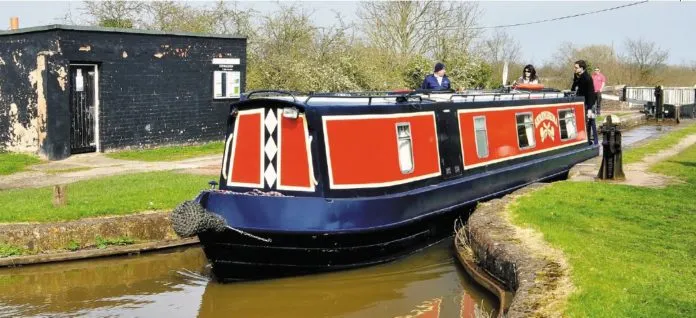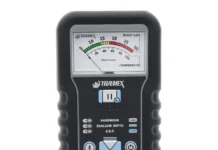If measured in dollars per hour on the water, the cost of owning a boat can seem an expensive proposition. According to one study, nearly 16 million recreational boats in the U.S. sit unused for 348 days of the year. In a January 2006 article, we looked at fractional ownership as a way to offset costs. Todays burgeoning share economy has opened up another option: peer-to-peer (P2P) boat rental.
Similar to some established home-exchange websites like AirBnB and HomeExchange.com, P2P boat-rental businesses use search-engine technology to connect boatowners (individuals or businesses) with people looking to rent.
For the owner of a seldom-used boat, listing the boat with a P2P service can turn the boats idle time into money. Sailors who don’t own a boat (or don’t have one in the location they want to sail) can browse a wider range of rental choices around the world. Many of the P2P websites also list captains for hire; so, if youre new to sailing, you can hire a helmsman, or if you have your captains license, you can earn some extra money skippering your boat or someone elses.
To get a better idea of the pros and cons of the world of peer-to-peer boat renting-for owners and renters-we did a market scan of online P2P boat-rental companies: BoatSetter, Cruzin, Boatbound, and GetMyBoat. We also tested out Fun2Boat, but the company was put up for sale just before presstime, so we dropped it from this report.
Photo courtesy of Boatbound
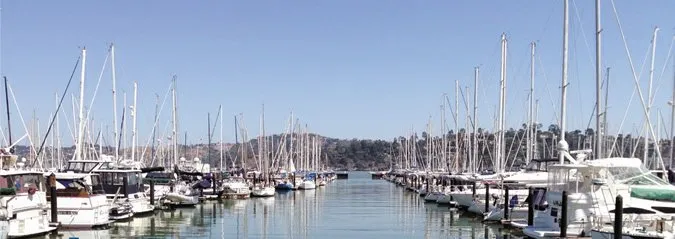
Peer-to-peer Rentals
The P2P market leverages information technology to encourage the use of excess capacity in goods and services. In the case of the P2P boating market, the excess capacity is the time a boat sits unused. The Web-based businesses we evaluated provide a liaison between owners of an available boat and people who are looking to rent a boat by offering an easily accessible platform for listing and searching for boats.
The share economy isn’t new-communities have been sharing goods and services for centuries. However, thanks to the Internet, these collaborative exchanges have gone global and have led to the creation of a for-profit business model.
In the case of home exchanges, one homeowner swaps his home with another in a money-free exchange; however, in most cases, the homeowners pay a fee to list their property on an exchange website. Web-based home-exchange businesses profit from these listing fees.
Conversely, the boat-exchange companies we reviewed allow boat owners free listings and boat seekers free access to listings; in exchange, some companies profit from a pre-established percentage of the rental fee, while others profit from selling ancillary products and optional premium services. The boat-available, boat-wanted data supplied on this open-platform type of Web business makes it easier for boat owners and renters to find each other.
In 2011, collaborative consumption was named one of TIME Magazines 10 ideas that will change the world. Forbes Magazine estimated that the revenue flowing through the share economy surpassed $3.5 billion in 2013. The increasing use of technology is now one of the biggest factors in the spread of the sharing-economy business model.
Buyers Guide
When it comes to P2P boat rental, questions about liability and price top the frequently asked questions list.
Costs: Before you list your boat or rent a listed boat, investigate how clearly all fees are conveyed. For renters, not only should the price of the boat rental be clearly posted, but extra fees, such as required third-party insurance, service fees, refueling fees, administrative fees, cleaning fees, late fees, and no-show fees also must be clearly conveyed. If these things are not clearly addressed on the website, you can be sure there are other hidden fees to worry about.
Owners also should find out how these costs are handled before posting their boat for rent. Are the fees included in the rental cost, or additional? Are you responsible for refueling and cleaning, or is the rental company or renter?
Insurance and liability: If youre thinking about listing your boat on a P2P site, check your current boat insurance policy to see whether your coverage includes a for-profit rental. Under many traditional personal property and boat liability insurance policies, coverage is null and void when a boat is rented out.
In most cases, a separate policy will be needed to cover accident liability, property loss, or any boat damage during the rental period. Companies such as Great Lakes Insurance, Falvey Yacht Insurance, and Lloyds of London offer endorsement policies and short-term policies that can be used during a rental period. All of the P2P companies we reviewed offer these policies, either included in the rental price or for an additional fee.
Each P2P company we reviewed has its own property insurance and personal liability rules. All except GetMyBoat require insurance.
Before the rental agreement is made, it is important that both sides know who and what is covered during the rental period. These terms vary from policy to policy, so read the fine print. Find out what are the liability limits and exclusions, and what damage is covered on the rental boat or other boats that might be damaged by the rental. For instance, who would be responsible for replacing binoculars that are dropped overboard?
Boat owners who keep their boat in a marina or community dock and who want to list their boat on a P2P website will need to clarify with the facilitys management whether they are allowed to rent their boat within the facility.
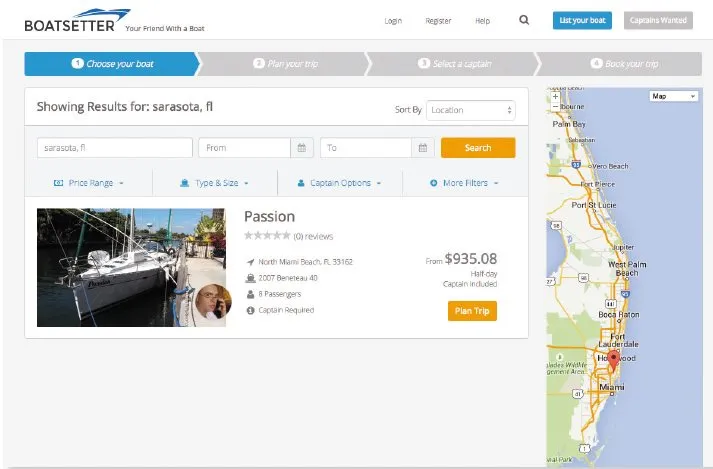
Safety and security: In our market scan, we looked at whether the companies had protocols in place to ensure that rental boats were safe and well-maintained. And for bareboat rentals, we checked to see whether company policy guaranteed that the renters were qualified to take the helm. Some companies had safeguards like boating experience requirements, background checks, and health checks for the boats, but not all had these protocols, so we recommend asking the company about these before you get involved in a rental deal. In all cases, however, the owner gets the final say on a rental; but you might have to do the legwork to vet the renter yourself.
Personal information: In this world of unfettered information cyber-sharing, very little that is posted online is private. But what about the personal info you supply the P2P rental businesses, like your home address, email address, or drivers license number? Each company we checked out has a privacy policy posted on its website; some, like Boatbound, are easier to find and decode than others. They all varied in the wording, but the basic gist was that while your financial information is secure, youre likely to be put on mailing lists belonging to the companies partners and trusted entities for marketing purposes. We recommend taking the time to read these companies privacy policies and terms of service-know what youre getting into.
What We Tested
For this article, we looked at websites that offer free listings and free searches. We think some sort of direct contact between the owners and the renters should be made before any rental occurs.
This report evaluates four P2P boat rental companies: BoatSetter, Cruzin, GetMyBoat, and Boatbound.
BoatSetter is a Miami-based P2P boat rental company that originated in 2014. The website currently lists approximately 150 boats, predominantly South Florida-based, luxury powerboats offered with USCG-certified captains. (Note that the number of boats on each site can change on a daily basis; the numbers stated in this article were accurate at presstime.)
Cruzin, launched by CEO Jaclyn Baumgarten in 2012, is based in Dania Beach, Fla., with a second office in San Mateo, Calif. It lists approximately 2,000 boats, with offerings across the U.S., Canada, the Caribbean, and Europe. Two years ago, Cruzin formed a strategic alliance with Westrec Marinas, one of the worlds largest marina owner-operators.
With 29,000 boats in 135 countries and 3,000 locations, GetMyBoat has the highest number listed boats. The San Francisco-based company began formal operations in 2013. GetMyBoat is the only business we reviewed that does not take a percentage of the rental transaction fee. GetMyBoat gets its revenue through supplementary insurance sales, ancillary sales, and optional charges for premium services, such as a prominent spot on its featured listings page.
Formed in 2013, Boatbound rose to notoriety in October 2014 as a result of CoveGate: During the 2014 World Series between the San Francisco Giants and the Kansas City Royals, Boatbound founder and CEO Aaron Hall announced (and the national media quickly reported) that San Franciscos beloved McCovey Cove had been renamed #BoatboundBay. After the dust settled from the hoax-and Boatbound offered to make a donation to the Port of San Francisco to help keep McCovey Cove safe for all boaters -Boatbound soldiered on and now lists approximately 9,000 rental boats across the U.S. and features a partnership with the American Sailing Association (ASA).
How We Tested
We evaluated each companys business model and its approach to boat rentals. For ratings, we considered the number of total boat-rental offerings on each website and the number of sailboats for rent. We looked at the saturation of different geographical regions and the numbers of sailboats available across the widest number of locations.
Testers also considered whether the companies offered other products, such as boat charters with licensed captains and insurance. We took note of the commission percentage each company charges, and confirmed that all companies use a free to list and free to search platform. Ratings also took into account any additional fees the companies tacked on, such as administrative or service fees, and how they manage late returns, refueling fees, cleaning, and no-shows. Geographic coverage, ease of boat search and listing, and website user-interface were also considered. We looked at how each company addresses insurance and towing, and how each company addresses what to do if something goes wrong.
Some companies simply provide the connection between owners and renters, while others offer additional services, including insurance policies, refueling, boat cleaning, and rental check-in and check-out services. All the companies we assessed, except for GetMyBoat, accept payment from the renter and then pay the owner. GetMyBoat leaves the money exchanging up to the two parties.
At the end of the day, we wanted to know whether the websites provided value and a good experience to participating boat owners and renters.
BoatSetter
BoatSetter rents boats in the 27- to 70-foot range. Of the approximately 150 boats on BoatSetter, we found only one sailboat in the listings: a 40-foot Beneteau sloop out of Miami Beach that rents for $162/hour with a four-hour minimum and a licensed captain required. The BoatSetter management team explained that they are actively seeking sailboats to expand their fleet, which is predominantly in southeast Florida.
The company takes a 30-percent commission out of rental fees and pays boat owners via wired payments after the rental is complete.
The BoatSetter website is user friendly, and in addition to boat rentals, the site offers connections with available captains and on-the-water experiences such as waterskiing, fishing, and sightseeing.
Captains-for-hire go through a pre-screening process, and boats are required to meet high safety standards. Every boat is visually inspected prior to allowing it on the BoatSetter website. Because most BoatSetter boats are rented with licensed captains, the company does not run background checks on renters. BoatSetter allows owners to decide whether potential renters meet their expectations; owners can accept, deny, or reach out to the renter or captain to help make decisions.
The BoatSetter rental cost includes $1 million in primary liability protection and up to $2 million in hull coverage through Great Lakes Reinsurance. The fee also covers on-water support from BoatUS. The refundable $500 security deposit would go toward any claims, but the renters deductible for hull claims is $500 or 2 percent of the boats insured value, whichever is greater.
There are insurance limitations; boats more than 10 years old, those over 45 feet, and wooden boats will require additional insurance. And there are exclusions: carbon-fiber and carbon-fiber-masted boats and trimarans. A comprehensive, 9,000-word Terms and Conditions document on BoatSetters website spells out the answers to any questions users might have on liability and terms of use.
BoatSetter partners with a national network of marinas, including Loggerhead Marinas, Marinas International, Flagship Marinas, Morningstar Marinas, Suntex Marinas, Almar Marinas, and Aquamarina facilities. The company claims that it makes boat rentals available to everyone by being captain-centric, allowing people without boating experience the chance to rent a boat with a licensed captain.
Bottom line: This is a good choice, if you are looking for a luxury, captained powerboat rental in Florida, but for sailors looking to rent, BoatSetter has limited appeal due to a lack of sailboat listings. Luxury sailboat owners may be well served by listing on the site, as there would be little competition. For most sailors, however, BoatSetter would not be our top recommendation.
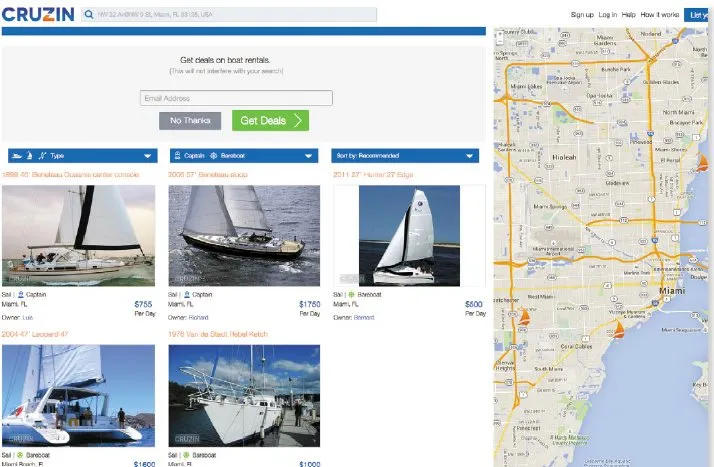
Cruzin
Cruzin touts its alliance with Westrec Marinas as an important edge that translates into a wider selection of rental boats. The alliance also brings together several boating experts and marina executives with decades of experience in the boating industry.
Boat owners can create a profile with photos of their boat on the Cruzin website and set a rental fee. Renters can look for a specific type of boat (powerboat, sailboat, kayak) and can see the boats price, location, and availability.
Cruzin prequalifies renters with a background check using Experian and other fraud-prevention services. Renters have to have at least two years of boating experience to rent bareboat, or they can rent a boat with a licensed captain at the helm using the companys Captains Program. Owners maintain full control over the rental agreement and can call it off at any time.
Renters pay a charter fee, a cleaning fee, if applicable, and a refundable $1,000 security deposit. One-hundred percent of the cleaning fee is passed through to the owners.
Cruzin takes a 40-percent commission from the rental fee, the highest commission of the businesses we evaluated.
Owners and renters are covered by $2 million in hull insurance and $1 million in liability insurance, along with Boat-US towing service. The cost of insurance and towing is included in the rental fee. If an insurance claim is made, the renters security deposit goes toward the deductible, which is $500 or 2 percent of the boats insured value, whichever is greater.
Cruzin offers an insurance policy that is primary and exclusive during the period in which the boat is being rented, including any sea trials. If an owners insurance policy specifically excludes using the vessel for hire or reward, Cruzin can refer owners to A-rated insurance providers who provide policies that do not restrict the rights of an owner to use his or her boat for business.
Similar to the other P2P boat rental companies, Cruzin has limits on its insurance and rentals on boats longer than 45 feet, boats that exceed $250,000 in market value, and boats that have a top speed over 50 miles per hour. Race boats, houseboats, ferrocement boats, and trimarans are not covered. The owner is solely responsible to verify that all required safety items are on the boat, and that they are accessible and in working order. (Renters should always doublecheck this before casting off.)
During a recent search of the Cruzin website, we found approximately 700 sailboats, about one-third of the 2,000 total listings. The boats are available throughout the U.S. and the Virgin Islands, and a few are in Europe; many of the Caribbean-based boats are company-owned charter boats, not peer-owned boats.
The least expensive sailboat rental we found was a 1986 13-foot Laser renting for $70 a day in Fenton, Mo. One unique listing was a Chris-Craft classic woody sportsman U-22 for $1,200 a day, in Eagle Bay, N.Y.
Bottom line: Cruzins 40-percent commission is the highest of the companies we evaluated, but its renter screening program and comprehensive insurance policy will appeal to listing owners. Renters have a varied selection to choose from, but many boats are conventional charters, not individually owned private boats; renters should budget added fees beyond the rental cost.
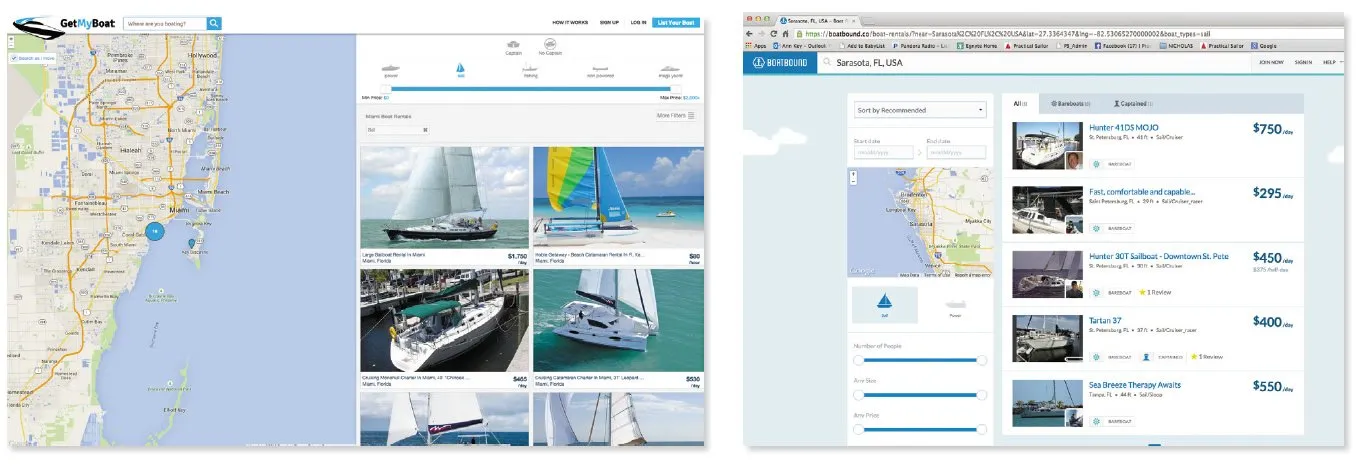
GetMyBoat
Founders Sascha Mornell and Raf Collado came up with the idea of starting a peer-based boat rental company 13 years ago when they noticed that so many boats sat idle on the docks.
Like the other companies, GetMyBoats listings and searches are free. The difference here is that owners receive 100 percent of the rental fees. Instead of charging a commission, GetMyBoat sells ancillary products such as temporary renters insurance and prominent placement of a boat listing.
The company does not require owners or renters to purchase insurance as part of the agreement, and theres no required security deposit. Rather, GetMyBoat provides the platform that connects renters with owners and charter boats, but it leaves it to the two parties to sort out insurance and security deposit amounts.
Boat owners and renters make their own choices about insurance requirements, and can purchase coverage from GetMyBoat. Through Falvey Yacht Insurance, GetMyBoat offers renters third-party liability and property damage policies on several different tiers, ranging from $27 to $56 per day. The bottom tier plan ($27) includes $50,000 in vessel liability per incident, $25,000 in vessel liability per person, up to $1 million in pollution liability, and $15,000 in hull liability; there is a $1,000 deductible.
As an owner, if you already have a policy and there is an incident, it stays on your record, and this could effect your future policies. Some people want a separate policy, Chief Information Officer Bryan Petro said.
GetMyBoat, which describes itself as the worlds largest boat rental and charter marketplace, goes beyond peer-to-peer rentals. It allows listings from private boat owners, boat rental companies, watersports companies, charter boat owners, and charter companies (including those with high-capacity daysail boats). Petro said that about 70 percent of GetMyBoat users are from the tourism industry. There are also some niche users: video and photography shoots, weddings, houseboats, tournament fishing, etc. They also offer experiences such as European river tours and shark diving in South Africa. Everything from stand-up paddleboards to megayachts, Petro said.
The boating industry was very fragmented, Petro explained. We said, why limit (rentals) to just peer to peer? We aggregate the whole industry-charter companies and peer to peer. The website is an open platform. Owners can put whatever pricing and scheduling they want.
Bottom line: If youre a renter, GetMyBoat is a good place to start your search. Although many of its rentals are not peer-to-peer, the site has the most listings and most widespread geographic coverage. For owners, GetMyBoat is the only company that doesn’t take a commission, but its also the only one that doesn’t require renters to carry insurance. It leaves much of the rental details-and liability risk-up to the renter and owner. The upside to listing with GetMyBoat, however, is that its large number of listed boats is likely to draw more traffic.
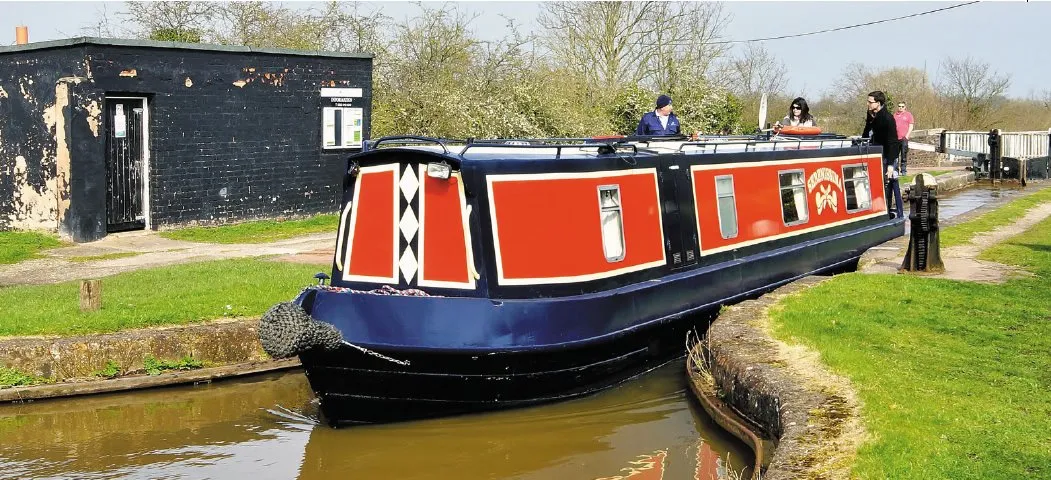
Boatbound
With offices in San Francisco and Miami, Boatbound does not currently rent boats outside of the U.S. Users must join Boatbound (its free, but you must enter an email) in order to search the sites rental boat directory. The site was easy to navigate, and essential information-like terms of use, fees, and privacy policy-is accessible without joining the site.
The company adds a 10-percent service fee to each boat rental and takes a 35-percent commission. The charges cover the cost of the insurance, towing, payment processing, Google promotion, listing and availability management, and support services provided by Boatbound to both the owner and renter during the rental period. Every rental comes with on-water support from BoatUS.
The company also requires a refundable $500 security deposit, but boatowners may increase the amount. The fees and services provided are clearly spelled out on the Boatbound website.
Boatbound provides up to $1 million in liability protection and up to $2 million in hull damage protection with each rental; coverage is through Lloyds of London. In case of a claim, the deposit is used toward the deductible, which for hull damage is $500 or 2 percent of the boats insured value, whichever is greater; the liability deductible is $500.
Boatbound deposits the owners share of the rental fee into the owners bank account via direct deposit after the rental period begins. Owners receive an insurance card to keep on their boat, and renters receive an insurance card to take with them during the rental. The company encourages all owners and renters to speak with each other before the rental period begins.
Boatbound pre-screens renters, but owners have the final say on who rents their boat. Typical site users are people like boat owner and avid sailor Dan Knox, who keeps his Islander 36 in the San Francisco Bay area. Knox has rented out the Islander nearly 50 times, and he even teaches interested renters the ins and outs of sailing during their rental.On the renter side is sailor Peter Protopappas, who said he has rented sailboats in the Bay area through Boatbound at least 10 times.
A unique bonus to using Boatbound is its exclusive partnership with the American Sailing Association. Boatbound members receive access to ASAs extensive library of tutorials, educational and destination-focused content, as well as discounts on ASA sailing certification courses.
Once a sailor completes a certification course, they can add the ASA credentials to their boater profile on Boatbound. In addition, all ASA members will receive a $25 boating credit to use toward a rental.
Bottom line: Boatbound has one of the largest numbers of boat listings available, and it has offerings across the U.S. Although the 35-percent commission is the second highest of the companies we reviewed, the association with Lloyds of London and the partnership with the American Sailing Association are big pluses. Its our top recommendation for sailboat owners and renters who could benefit from the ASA educational perks.
Conclusion
P2P rentals offer boat-less sailors a great way to get on the water inexpensively, without the commitment of a boat timeshare club. And boat owners who seldom use their boats can capitalize on the down time to help defray the costs of ownership. To be sure, there are risks involved on both sides of the deal, so its imperative that you know what youre getting into before listing on or renting through one of these sites. Read the fine print. Clarify any vague information. Be sure youre dealing with a qualified renter or a responsible boat owner.
With P2P, much of the onus is on the owner. Be sure youre comfortable with the insurance thats in place and the risk youll have in a worst-case scenario. Do not rent without effective insurance in place.
It seems to us that there are no losers here. Since its free to list and free to search, boat owners and renters can use all four companies. None of the commissions or fees seem exorbitant, in our opinion, for what you get in return. As an owner, youll want to compare the data (see accompanying Value Guide) and choose the one(s) that suit your needs, locale, and income desires.
The three companies with set insurance policies that are included in the rental fees-Boatbound, BoatSetter, and Cruzin-offer comparable coverage. The insurance products that GetMyBoat sells do not offer the same level of coverage.
As far as selection, from a renters perspective, youll find the biggest sailboat inventory on GetMyBoat, but Boatbound and Cruzin have sizable sailing fleets as well. Keep in mind that many of these listings are conventional charter boats that you might be able to book elsewhere for less. Before booking a charter through a P2P website, check for discounts available through the charter company itself, an established charter broker. Browsing a P2P site for charter options makes great sense for a sailor who wants to explore waters that have few, if any, charter fleets.
If fees and commissions turn you off and you want to be wholly in charge of renting out your boat, GetMyBoat is the best fit. If youre a renter looking for a day of luxury powerboating while in Florida, check out BoatSetter. Browse the Cruzin listings, if youre looking for a Caribbean sailing vacation.
Based on our preliminary research, Boatbound offers U.S. sailors the most value. In addition to a varied selection of sailboats to rent in the U.S., the benefits of the ASA partnership are a bonus for owners and renters. While Boatbound takes a large commission, insurance coverage is comprehensive and the support services are favorable.
